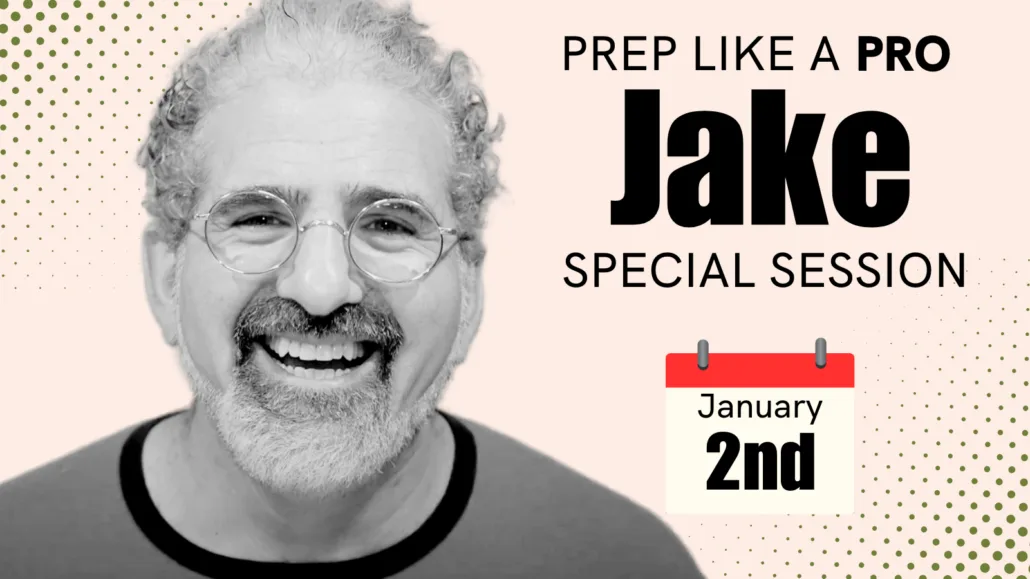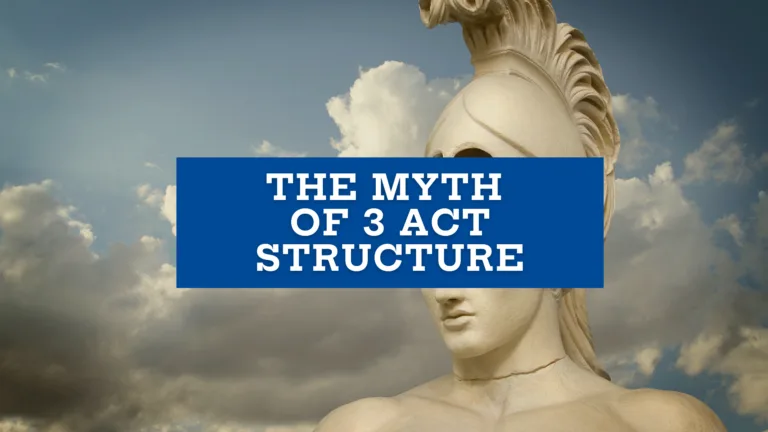UP vs. SOUL: What Theme is Driving Your Writing?
Today we’re going to be looking at Soul by Pete Docter, Mike Jones and Kemp Powers.
Soul is a fascinating movie, especially if we think of it in terms of the whole Pixar library, because the truth is Pete Docter has already made this film. Pete Docter, many years ago, made a film called Up.
In today’s podcast, we’re going to analyze the scripts for Soul and Up, exploring how the two screenplays explore the exact same theme and structure through a different plot. Along the way, we’ll learn some powerful lessons about how theme can drive your writing.
So, what’s the theme of Soul? The theme that Pete Docter is still hammering away at so many years later in Soul is the idea that by getting too attached to what we perceive as our life’s purpose, we can become lost souls. By becoming so obsessed with what we’re supposed to be doing, we actually end up missing life.
In Up, the way that that problem gets created is through a man who is madly in love with his wife. She dies young. And he spends the rest of his life trying to preserve her memory, trying to get to this place called Paradise Falls, which he believes is his destiny.
In a typically Pixar-magical way, in search of that destiny, he flies his house to Paradise Falls using balloons and ends up on the wrong side of the falls. Unfortunately, he has a stowaway passenger that he was really hoping not to bring along on the journey, this little kid named Russell, who is desperate for a father.
To understand why that little stowaway is there, we have to look at the beginning of Up.
There’s a beautiful 10 minutes of silent filmmaking at the beginning of Up that is pretty much a perfect short film.
In the short film, Carl meets the love of his life, Ellie, and they dream of having a child together. And she can’t have the child. They build a life together and they get consumed by normal life obstacles, and they never make it to Paradise Falls before she dies.
He gets obsessed with preserving what’s left of his destiny with Ellie, the things from their past and the things that they were supposed to have before she was taken from him.
Having arrived at “the wrong side of the falls,” the house becomes a visual metaphor, literally tethered to him by a garden hose, as he drags it behind him to Paradise Falls.
It’s like the albatross around his neck, and he’s so obsessed with getting that house to where it’s “supposed to be” that he almost misses the real destiny that’s right in front of him: this little boy who can become the son that he always wished for, that he always wanted with Ellie.
So, that’s the structure of Up.
By the end of the film, Carl finally lets go of the house, when he realizes that the things that mattered most to him with Ellie were not the big things that they dreamed of. The everyday little things in his life with Ellie was the real adventure.
Like many writers, despite having made an absolutely perfect movie, Pete Docter is still not done with that theme. 12 years later, he’s still wrestling with it in a different form, this time in a movie called Soul.
This is something that happens to all of us. Some themes will work themselves out over the course of a single script and other themes we have to look at from one angle after another.
And it makes sense, because Pete Docter is one of the great producer-director-writers in history. He’s behind some of the greatest Pixar films, and always in collaboration with other brilliant artists (in the case of Soul with writers like Kent Powers and Mike Jones).
Being that big head honcho and making those big things and doing these great things, it’s only natural to feel pressure between being the powerful creative force who you’re supposed to be– who you have the talent and the means to be– and those everyday things that give life meaning.
When we get to Soul, we find another character who has the exact same problem of feeling like he is cut off from his destiny.
 In this case, the main character is Joe. Joe is a high school band teacher and his dream is to play jazz. All he wants to do is be a professional jazz musician.
In this case, the main character is Joe. Joe is a high school band teacher and his dream is to play jazz. All he wants to do is be a professional jazz musician.
If you’re a screenwriter or an artist of any form, you’ve probably had those people in your life who love you, and also really don’t understand what you’re doing.
In Soul, Joe has a mom like that. She loves him, but she doesn’t understand what he’s doing. She doesn’t get why he doesn’t just want to take the full-time job as the high school band teacher and have security and safety and money.
She doesn’t understand what’s driving her son.
Which means that Joe is pursuing a destiny and feeling like there’s no one on his side. There have been a million doors slammed and he’s never gotten his big break. And nobody really gets it.
When the “big break” comes in Up, it’s a bad thing. It’s Ellie’s death and all the crises that get in the way of going to Paradise Falls and having the child and the dream that he wanted.
In Up it’s a bad thing– the threat of losing his house and his control over his own life–that creates the obstacle that sends Carl on his journey. But in Soul, it’s a good thing that sets Joe on his journey.
Joe gets the gig of his lifetime: the opportunity to play with Dorothea Williams, his jazz hero.
During his audition, he does exactly what he’s been encouraging his students to do. He gets lost in the jazz. He gets transported.
And Dorothea, unlike Joe’s mother, doesn’t judge him. She gets him. She understands.
Joe gets the gig. And this is the beginning of his journey.
It’s not an obstacle. It’s not a stick beating him and forcing him to go on this journey like it is for Carl. It’s not like the people in Up coming to take Carl to the old-folks home. In Soul, it’s a gift.
In both Up and in Soul, it is a childhood experience that gives the character the sense of their life’s purpose– just like for us as writers, it’s often a childhood experience that drives the themes we will wrestle with in our writing.
In Up, it’s meeting the love of his life as a little boy and believing that they have a destiny together, in Paradise Falls, following the path of their childhood hero, the great adventurer Muntz.
In Soul, it’s a moment that happened long ago between Joe and his father, when Joe experienced jazz for the first time and realized that this was his destiny; this was what he needed to do for the rest of his life.
Both of these characters are on a journey that started from their childhood, and both of these characters find themselves in later age feeling like they missed out on that great destiny they imagined for themselves.
Joe feels like he somehow became a high school band teacher instead of a jazz legend.
Carl has somehow lost his wife, never had a child and ended up an old man. And now they are threatening to take Carl away to a nursing home, and away from his house and all the things he is holding onto from his time with Elllie. That’s what leads him on his journey to finally achieve his destiny and go to Paradise Falls.
So for Carl, it’s an obstacle. It’s a stick that pushes him through the door of pursuing what he believes is his destiny.
 For Joe, it’s a carrot. The carrot is Joe finally getting the gig of his lifetime: He is going to play with Dorothea Williams, one of his idols.
For Joe, it’s a carrot. The carrot is Joe finally getting the gig of his lifetime: He is going to play with Dorothea Williams, one of his idols.
You can see one character is getting moved by a carrot, and the other character is being moved by a stick.
But both carrot and stick are really just inciting incidents that open the door to change for these characters in relationship to the theme, by setting them on the path to living their destiny.
Both characters are now pursuing what they believe to be their destiny: Get to Paradise Falls. Become a jazz musician.
And then an obstacle happens.
What’s the obstacle? Well, there’s a slight tiny spoiler ahead, but it occurs only 10 minutes into the movie… so it’s probably worth it to keep on reading!
In Joe’s case, the obstacle is, he’s so excited that he’s not paying attention to where he’s walking, falls into an open manhole cover and dies. And Joe’s soul is transported to heaven, or a Pixar version of the afterlife, which is a giant people mover leading into what looks like a dark sun, until the souls disappear with a bzzzt!
The vision of the afterlife in Soul is a gorgeous animation sequence that quite frankly Pixar wasn’t doing back when they made Up.
This kind of animation was most likely inspired by some of the work that was done by my friends Chris Miller and Phil Lord in Spider-Man: Into the Spider-Verse or in the later seasons of BoJack Horseman, playing with two dimensionality and three dimensionality and mashups of different kinds of animation that we don’t usually see from big Hollywood Studios.
It’s a growth of the craft of the artists, not just of the art.
It’s not just a deeper thematic exploration of the same idea. It’s also coming back to that same idea with different craft and different influences and a different point of view.
In this case of Soul, Joe doesn’t want to just bzzt! into the Great Beyond. Joe wants to get home to fulfill his destiny. His destiny is not to bzzt! His destiny is not to just disappear. He is meant for something great and he is not going to lose his opportunity.
So Joe, just like Carl, refuses to be taken away.
Carl refuses to be taken away in his home, so he sails off to Paradise Falls. Joe dives off of the great people mover of heaven, and he passes through some of the most awesome animation ever and lands in a place called the Great Before, (now rebranded as the You-Seminar), where he becomes a mentor to little baby souls.
In both screenplays, Up and Soul, it’s the same journey to the Great Beyond (the Great Beyond of Paradise Falls, and the Great Beyond of… well, the Great Beyond) through which the character is going to get another chance to pursue the destiny that they feel they missed.
In Soul, like in Up, the main character once again gets saddled with a kid he doesn’t want. In Up, that kid is Russell, the over-zealous wilderness explorer who hitches a ride on Carl’s house. In Soul, that child is 22, the polar opposite of Russell.
22 has been living in the Great Before (aka the You-Seminar) forever because unlike Joe, who’s driven by his passion for Jazz, she can’t find her spark. She has no enthusiasm whatsoever for anything. 22 thinks that life is a big waste of time. 22 cannot find her purpose. 22 just doesn’t want to go to Earth because she has no interest at all in living.
She is a dialectical opposite of Joe (and the dialectical opposite of Russell). 
And so Joe, trying to get back to Earth, takes on this role of 22’s mentor, in hopes of helping her find her spark before 6:30pm Eastern Time, and using her spark to bring him back in time for his big performance!
Now, there are a bunch of little plot holes in Soul, little details that don’t totally make sense.
What happened to the guy who’s supposed to be 22’s mentor? How do they mistake Joe for him? What makes Joe think he can steal somebody else’s little magical badge and ride it back to reincarnate as himself…
And you notice that Pixar doesn’t deal with that stuff all.
Why? Because when you’re writing, the goal is to always navigate towards the fun.
Sure, if you can shore up your little plot holes, you should. Up, for example, despite its wild premise is virtually hole free.
But sometimes, especially in early drafts, we get so caught up in trying to make it all make perfect sense, that we can lose sight of what’s really important about our premise.
If there’s one great lesson we can learn from Soul, it’s that writing is much more about theme than it is about plot.
It’s not about all the micro-details of how it happens. It’s about what the character wants and what the journey is in relation to the theme.
Despite its flaws (and like most scripts Soul does have some) Soul works because these writers have their eye on the most important ball, launching the main character into the action and his journey in relation to the theme.
So, what’s Joe’s purpose? To be a jazz musician. How’s he gonna do it? He’s going to help 22 to find her spark so that he can take her patch and go back to Earth. This is the plan. Joe’s version of Paradise Falls is to get back for the 6:30 pm concert.
In order to do that, 22 and Joe meet up with a wild character named Moonwind in this magical liminal space, which is inhabited by two different kinds of beings.
It’s inhabited by artists who are lost in the music, by people who are doing their life’s purpose and in the flow and transcending. But it’s also inhabited by lost souls, by these dark creatures who are subsumed and consumed by their obsession and are turned into these scary, angry creatures.
Moonwind’s life purpose is to travel around rescuing those lost souls and bringing them back to finding their spark.
There’s a really interesting argument that’s happening here. And this is where the structure of Up and the structure of Soul start to diverge.
In Up, the problem is dragging that house. It’s the same idea, thinking you’re living your life purpose, but getting so obsessed that you end up becoming a lost soul.
 In Soul, the idea of the lost soul adds another level of complication: the transcendent soul and the lost soul are seen as different sides of the same coin. And that idea gets physicalized in this liminal space where we actually see both sides.
In Soul, the idea of the lost soul adds another level of complication: the transcendent soul and the lost soul are seen as different sides of the same coin. And that idea gets physicalized in this liminal space where we actually see both sides.
We see the artist’s transcendence that we all long for when we are in the flow. And we also see that lost soul feeling that all artists suffer at times.
Quite frankly, if you’re a screenwriter, you’ve probably had that lost soul feeling, right? That feeling we all suffer when the ego gets involved, and we start to think that we need to be the great writer, when we start to think that this is the only thing that matters, and when we start to lose all of the beauty that actually makes art worthwhile, that actually allows us to feel that transcendence.
That complicated concept gets physicalized in that liminal space. And without giving you all the plot of Soul, coming back to the big structure, here’s what’s going to happen.
We are a smart audience, so having seen Joe be a great mentor to his students and the band, and having seen Joe be a surprisingly great mentor to 22, we’re already anticipating what we think the ending is going to be.
We think the ending is going to be Joe realizing his real calling is not to be a jazz musician but to be a teacher, kind of in the way that Carl realizes his great journey is not to get his house to Paradise Falls but to pin a soda pop pin onto a little boy and become a father to a kid who needs him.
We’re telling ourselves the story of “this is what’s going to happen.”
It’s great when the audience starts to tell themselves a story. But you also want to make sure that you surprise the audience. And what is so beautiful about Soul is that Joe’s ultimate journey is not the one that we expect.
What happens (through a bunch of plot that we won’t get into in this podcast), is that 22 ends up in Joe’s body and ends up experiencing all these wonderful things about life, like eating pizza, or going for a walk… the little, tiny, normal-living things that make life meaningful.
And she realizes that’s her spark! She’s finally found her spark: these simple everyday things.
And Joe, being the well-intentioned, mentor, actually trying to do the right thing and look out for her says, “no, that’s not a spark. That’s not a passion.”
And it’s such a powerful scene, because what ends up happening is 22 turns into a lost soul, not because of the advice of a bad mentor, (this is not Whiplash), but because of the advice of a misguided one.
And I think this is so important if you’re a screenwriter. It’s so important who you take advice from. And it’s important to remember that the mentors in your life, even the great mentors, have their own problems and their own misperceptions in their worldview.
 And what happens is, when the mentor’s ego gets involved in the mentorship, when it becomes about the mentor’s answer rather than about the mentee’s questions, rather than about the mentee’s instincts, often a great mentor can actually push a brilliant artist in the wrong direction.
And what happens is, when the mentor’s ego gets involved in the mentorship, when it becomes about the mentor’s answer rather than about the mentee’s questions, rather than about the mentee’s instincts, often a great mentor can actually push a brilliant artist in the wrong direction.
I’m not coming down on Joe. The character Joe is an amazing mentor who takes a total cynic who doesn’t even believe that life can possibly have a purpose — a dialectical opposite to Joe who believes he knows exactly what his purpose is — and he brings her 96 percent of the way there.
But his misperception about what purpose means ends up nearly destroying her.
And the simple mistake he makes is that rather than trusting her instincts, he tries to impose his own.
To relate this to feedback on your own writing, which we all need, but which we also must be so careful about, here are some important questions to ask to make sure you are getting feedback that’s going to be really valuable, and isn’t going to lead you in the wrong direction:
Is the person telling you what to do? Or is the person helping you to connect to your own instincts and to build upon the things that matter to you?
Is the person telling you, “This is the formula that you should be following. This is what it looks like.” Or is the person talking to you about what you are connected to, what you are enjoying and helping you build on that?
To bring this back to Soul, poor little baby 22 comes this close to finding her life purpose, only to decide that her life purpose isn’t good enough because she’s being mentored by a person who is so focused on his one idea of what a purpose is that he doesn’t even realize that he’s missing out on all the great things in life.
And all of this is handled so subtly in Soul.
It’s not like Up, with the big adventure book, where you realize what the real adventure is at the end, and it’s literally spelled out for you “thanks for the adventure, now go have a new one…”
It’s handled so subtly through little things– like some girl named Lisa who Joe liked but never called, like his lack of full investment in just being a bandleader in the Buddhist sense, Joe’s struggle to just be in the now and his tendency to always being in the great jazz musician future.
So we reach this point where both 22 and Joe reach this realization at the same time: that Joe’s spark was not being a jazz musician and was not being the mentor we all think he’s destined to be.
Joe’s spark was actually just enjoying all these little things that make life special, the same things that 22 has come to love.
And Joe’s gifts, his wonderful gifts as both an artist and as a mentor, were actually simply means to that end.
And I think Soul is an incredible film. But more importantly, it’s an incredible lesson for every artist. 
It’s such an important lesson because all of us have our egos caught up in our art. And all of us are dependent on feedback from people who also have their egos caught up in their art. And there is such a struggle and such a feeling of calling and so many doubts of “Am I really meant to do this?”
And if you, as an artist, can bring yourself back again and again to the simple enjoyment of the process, well, you’re going to spend a lot more time in that transcendent place.
And you’re going to protect yourself from allowing your art to turn into that albatross around your neck, whether it is a house that is tied to you and weighing you down and obscuring you from the path that you need to take, or whether it is the sand of creative blocks that surround us when we can’t see outside of what we believe our destiny is.
So many writers, just like Pete Docter, go on a journey and write a movie that we feel is beautiful and that other people are moved by, only to realize we’re just not done with that theme.
And part of the beauty in being an artist is realizing that art is not a place you arrive. It’s a journey that you go on.
It’s an endless journey, and the gap between the movie in your mind that you wish to tell and the one that you’re able to get onto the page– that gap is always going to be there.
Even if you attack the same theme in 70 different ways with 70 different movies, there will always be a gap between what you are physically capable of saying this moment with your level of art and craft, and that perfect version of it that exists in your mind. Just like there will always be a gap between Joe’s vision of himself as an artist and that perfect vision in his mind, or Karl’s vision of himself at Paradise Falls and what’s actually happening in his life.
 The real joy of being an artist is recognizing that that’s not a bad thing.
The real joy of being an artist is recognizing that that’s not a bad thing.
In fact, if you ever arrived and ever really were a master of your craft, life would be incredibly boring.
If this was ever easy, it wouldn’t be worth doing.
It’s actually recognizing the joy of the process, the joy of wondering– all these little discoveries you make along the way, hacking away at the same problem, developing your craft, attacking the same thing in a different way until you understand it just a little better– this is what makes us artists and this is what gives our work so much meaning.
I hope that you enjoyed this podcast. If you are getting a lot out of this, which I hope you are, please help us out! Write us a review. Subscribe to us on iTunes or Spotify or whichever streaming service you use. Spread the word to your friends.
And if you’d like to join me live, come join me every Thursday night for Thursday Night Writes. (formerly Quarantinis) every Thursday at 7pm Eastern / 4 pm Pacific. We do an hour of deep discussion about screenwriting, special guests, exercises, feedback and pitching. It’s a tremendously fun event and it’s totally FREE.
*Edited for length and clarity



